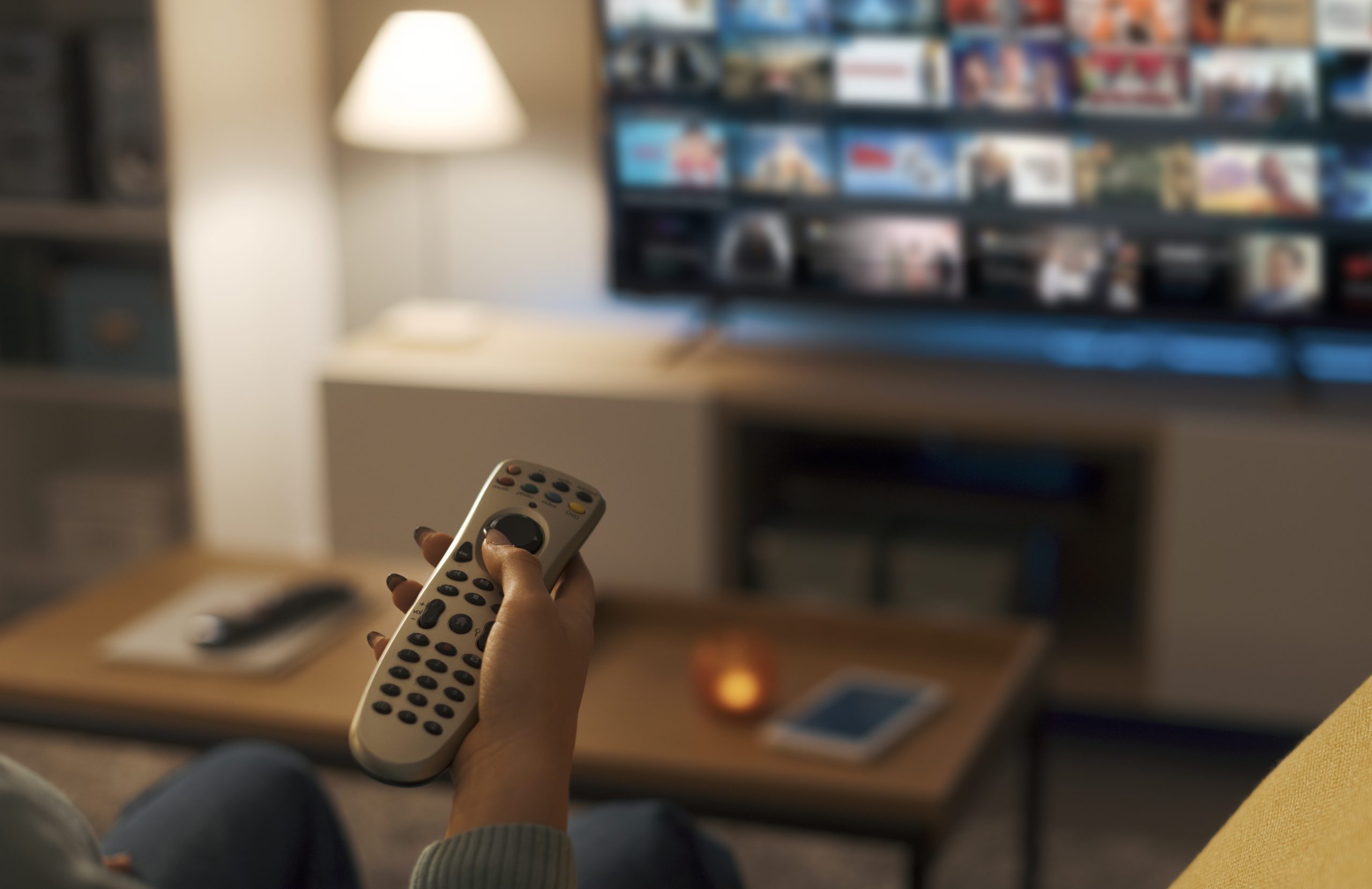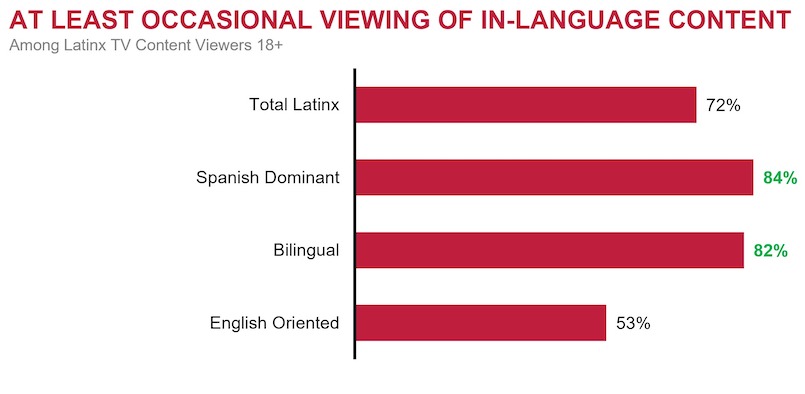LATINX SVOD VIEWERS
According to a recent report by Horowitz Research, “76% of Latinx TV content viewers subscribe to at least one SVOD service, compared to 67% of consumers overall.” More than fourth fifths of Latinx have access to at least one SVOD service. The most popular include Netflix, Amazon Prime, Disney+, Peacock, and HBO Max. “One in five Latinx have access, either subscription or free to Vix+, the premium service offered by TelevisaUnivision.” Also, free OTT services are increasingly popular. In terms of content, 72% of Latinx viewers watch Spanish-language TV at least occasionally and 63% watch international content. (RapidTVNews: 5/9/23)
PREMIUM LONGFORM TV VALUE
“Advertisers are figuring out how to balance both social video and big-budget TV.” A report by VAB found that ad effectiveness varies by content and ad impact with premium professional long-form content showing different results than other platforms. Marketers should base their decisions on criteria beyond top-line metrics of impressions and focus on the impact that different video levers have on brand recall, sales, and website traffic. A video interview with the VAB’s EVP accompanies the brief article and includes a discussion on multiple providers’ use for cross-platform measurement, the potential of a multi-currency upfront, the brand-safe, value of premium long-form content. (BeetTV: 5/9/23)
WEEKLY WATCH REPORT
The most watched shows the week of May 1-7, according to Inscape, include top sports (NBA, NHL, MLB, the Kentucky Derby, PGA, and USFL) in addition to morning news (GMA, CBS Mornings, Today, FOX and Friends), evening news (ABC World News Tonight With David Muir), Dramas (Blue Bloods, Chicago Fire, Gunsmoke, L&O SVU, Chicago PD), Comedy (Friends), and Variety/Game Shows (American Idol, Family Feud, The Price is Right) (TVREV: 5/9/23)
WRITERS’ STRIKE AHEAD OF TV UPFRONTS
When the Writers’ Guild of America officially declared a strike on Tuesday, May 2nd, there was an instant impact as shows like ABC’s “Abbott Elementary” “shuttered” and late-night shows aired reruns. This strike comes as advertisers prepare for the upfront season and when negotiations will begin to make long-term ad commitments. “While multiple agency sources have told Ad Age they are preparing precautionary measures and readying demands for greater flexibility in ad commitments, network executives said they will rely on the bigger-than-ever state of media portfolios.” However, a network executive assures that the strike shouldn’t throw advertisers off too much because the industry has already become accustomed to a new era of dealmaking after the pandemic. The supposed worst-case scenario is that the strike will impact programmers’ abilities to air scripted content in the fall. (AdAge, requires subscription: 5/5/23)
MALE VOICES DOMINATE VIDEO ADS
According to a diversity study by Extreme Research, TV and video ads use more males in both visual and voices globally and are more likely to employ people under the age of 40. The report is an expansion of last year’s analysis which found that males made up 74.9% of the audio in ads while 76.7% of ads featured 20–39-year-olds. As clients want to set goals around diversity, this report analyzed gender and age and found that the global ad industry is mostly male-dominated. “The visual composition of males is higher than the male percentage of the population in every region. East and Southeast Asia is the only region where the male and female balance is on par with the male and female population.” (MediaPost: 5/9/23)




